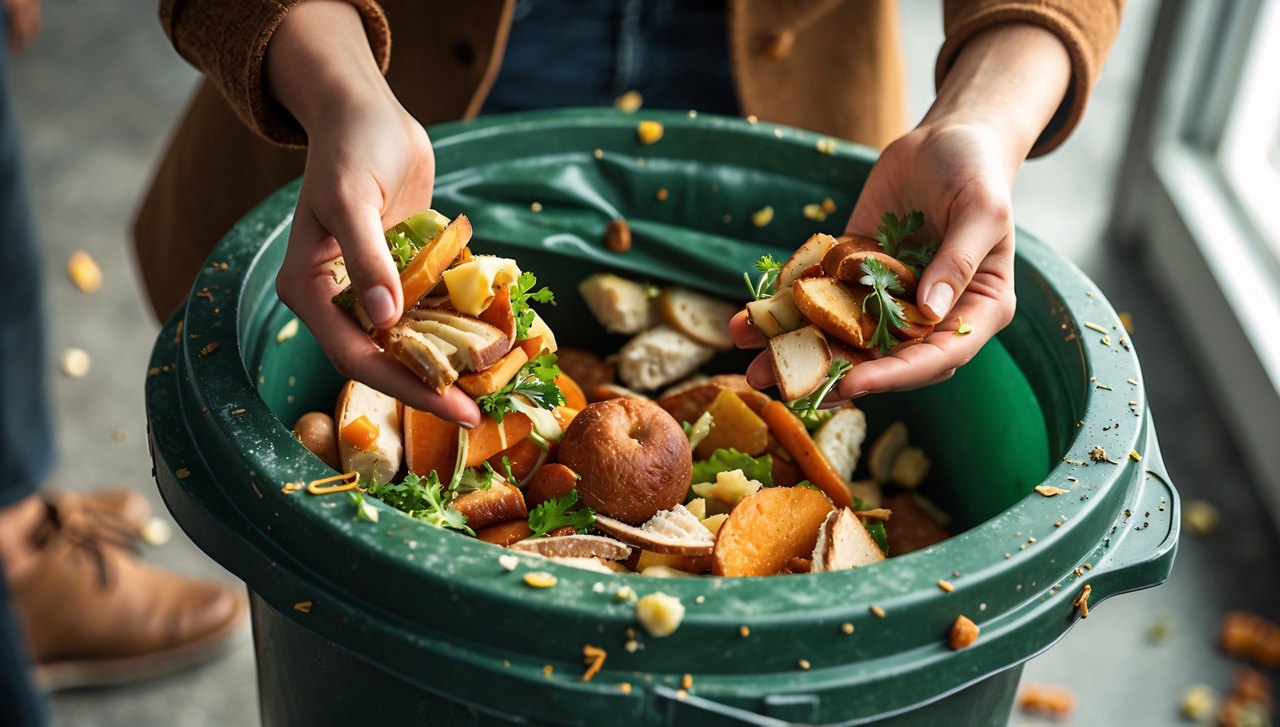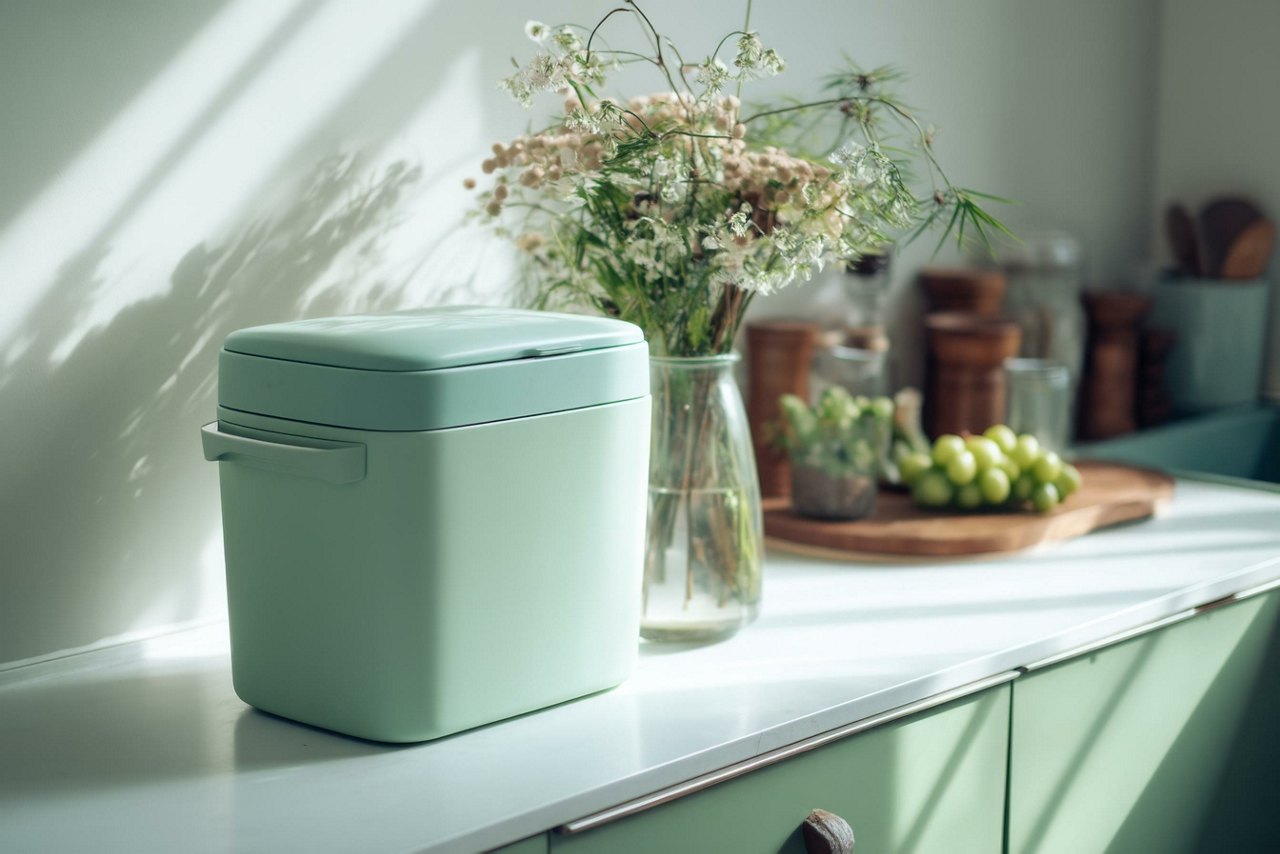How to Compost in an Apartment: Easy Ways to Reduce Waste
Composting food scraps in an apartment may sound challenging, but it's easier than you might think. By recycling organic waste, you can create nutrient-rich soil for your plants or garden while reducing your carbon footprint. In fact, food and yard waste make up more than 30% of landfill material, and much of it can be composted. By adopting apartment composting, you not only reduce waste but also contribute to a healthier environment.
Why Compost in an Apartment?
Composting is a natural process where food and other organic materials break down into rich, fertile soil. Composting in an apartment offers numerous benefits. It helps plants grow stronger and more resilient by increasing soil health, retaining moisture, and promoting helpful bacteria. Plus, it can save you money by reducing the need for store-bought soil and fertilizer.
For apartment residents, the benefits extend beyond just gardening. Composting cuts down on methane emissions, which are often released when food waste ends up in landfills. With the right methods, you can compost in an apartment, even in small spaces, without the mess or odor concerns some might expect.
How do you Compost in an Apartment?
Yes, you can compost in an apartment, it just takes the right setup. There are several options when it comes to apartment composting. The key is choosing a method that works for your living space, schedule, and lifestyle. Whatever your setup, there’s a method that fits your lifestyle.
-
Small Compost Bin for Apartment Living: A small compost bin for apartment spaces is a great way to start. These bins come in various sizes, from countertop models to freezer and under-sink units, and are designed to handle smaller quantities of waste. Choose one with a lid to prevent odors and a ventilation system to help with airflow.
-
Worm Composting (Vermiculture): Vermiculture is an efficient way of composting in an apartment. Red worms break down food waste into rich compost in a container or bin. This method is particularly great for small apartments since the bins can be placed under a sink or in a closet. You can create your own worm composting system or purchase a pre-made worm farm.
-
Bokashi Composting: Bokashi composting is another method that works well for apartment dwellers. Using a fermentation process, Bokashi composting breaks down organic waste quickly, even meat and dairy products. The waste is stored in an airtight bucket, and once full, it can be buried in the soil or added to an outdoor compost bin if available.
-
Composting Service: If you’re looking for a hands-off approach, local composting services do all the hard work for you. They often supply you with a bucket to deposit all of your compostable materials and offer a weekly or bi-weekly pick-up service, swapping out your full bucket for a clean one.
Small Kitchen Compost Bin Selection
When selecting a countertop compost bin for your kitchen, consider the size and space available. A compact bin is ideal for easy daily food scrap disposal. These bins usually have lids to control odors and can sit conveniently on your counter. Choose a size that matches your household's food waste level, opting for a larger bin if needed, but one that still fits comfortably in your space. To simplify cleaning, you might want to use bags as liners. A secure lid is essential to ward off pests and manage odors.
Get Involved with Community Composting
Community composting initiatives offer an excellent way to link with neighbors while handling your organic waste efficiently. Many urban areas, including cities, have local programs and collection sites where you can drop off compostable materials. These programs can handle substantial amounts of waste and often operate at community garden sites. Joining these initiatives not only enables efficient composting but also connects you with eco-conscious individuals sharing your values on sustainable living.
Tips for Apartment Composting
When apartment composting, you’ll want to balance green (nitrogen-rich) and brown (carbon-rich) materials. Green materials include food scraps like fruit and vegetable peels, while brown materials consist of dry leaves, cardboard, or paper. Make sure to chop up larger pieces of food waste to speed up decomposition.
Also, try to avoid composting items like dairy, meat, or oily foods, as they can attract pests and create unpleasant odors.
Avoid Unpleasant Odors in Indoor Composting
Managing smells is crucial for successful apartment composting. Compost bins with tight-fitting lids and filters are effective in preventing odors. Electric composters, designed as sealed units, typically include odor control features.Indoor Composting Techniques Explained
Exploring indoor composting methods like vermicomposting or electric composters can help you find a solution that fits your lifestyle and space. Worm bins utilize worms to efficiently break down food waste, requiring a balanced diet of scraps and bedding for worm health. Electric composters automate waste decomposition, needing minimal intervention as they mix and aerate the materials. Evaluate your space and time to choose the ideal indoor composting technique for your needs.
The Benefits of Apartment Composting
Not only does composting reduce your environmental impact, but it can also save you money. Instead of buying expensive soil or fertilizers, you can use your compost to nourish your plants. Studies show that composted soil promotes plant health and reduces the need for chemical pesticides. Additionally, it helps retain moisture, meaning you’ll need to water your plants less frequently.
For Greystar residents, apartment composting offers a simple yet impactful way to reduce waste in your home. Whether you’re looking to create healthier plants or decrease landfill contributions, composting is a great way to make a positive difference without taking up much space.
Ready to get started? Consider the following options for your apartment composting needs, and enjoy the benefits of homegrown soil in no time.
The information presented on or through this Website is made available solely for general information purposes. We do not warrant the accuracy, completeness, or usefulness of this information. Any reliance you place on such information is strictly at your own risk. We disclaim all liability and responsibility arising from any reliance placed on such materials by you or any other visitor to this Website, or by anyone who may be informed of any of its contents. Any reference to amenities, services, rules, policies, or procedures at a Greystar apartment community is general in nature, and each Greystar apartment community may have amenities, services, rules, policies, and procedures that differ from those referenced on this Website. Please consult with your Greystar apartment community for the exact amenities, services, rules, policies, or procedures applicable.
This Website may include content provided by third parties, including materials provided by other users, bloggers, and third-party licensors, syndicators, aggregators, and/or reporting services. All statements and/or opinions expressed in these materials, and all articles and responses to questions and other content, other than the content provided by Greystar, are solely the opinions and the responsibility of the person or entity providing those materials. These materials do not necessarily reflect the opinion of Greystar. We are not responsible, or liable to you or any third party, for the content or accuracy of any materials provided by any third parties. The information contained within does not relate to Greystar Investment Group, LLC’s investment advisory business.





